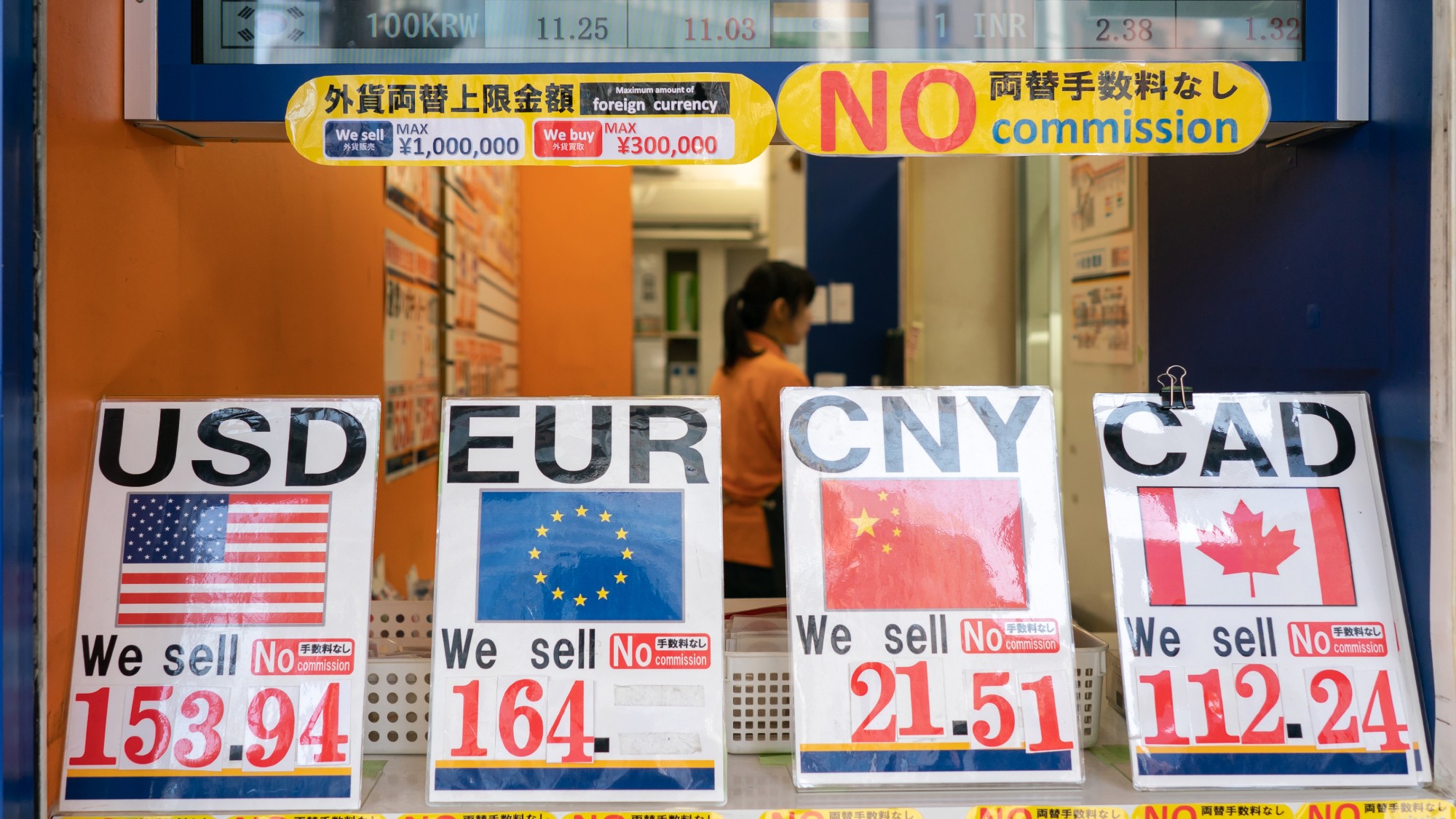What is the Mar-a-Lago accord?
A Maga economic blueprint proposes upending the global financial system. Could it fly?

A free daily email with the biggest news stories of the day – and the best features from TheWeek.com
You are now subscribed
Your newsletter sign-up was successful
Indices of economic uncertainty have skyrocketed above even the 2020 pandemic or the 2008 global financial crisis, as Donald Trump intensifies his trade war, said Gillian Tett in the FT. It could yet get worse. Amid all the tariff shocks, there is another question hovering. "Could Trump's assault on free trade lead to attacks on free capital flows too?" Put another way, "might tariffs on goods be a prelude to tariffs on money"?
Until recently, the notion would have seemed crazy. After all, foreign capital inflows benefit both US companies and the public purse, helping to fund America's $36 trillion national debt. But an opposite theory, advanced by the maverick economist Michael Pettis, has gained traction among "a trio" of influential Trump advisers. A new plan dubbed the "Mar-a-Lago accord", after Trump's Florida resort – and reportedly supported by Vice-President J.D. Vance, treasury secretary Scott Bessent and the chair of the Council of Economic Advisers, Stephen Miran – wouldn't just upend US economic policy, but completely "reset global trade and finance".
The basic problem, as proponents see it, is that the US dollar is too expensive, said John Rapley in The Globe and Mail (Canada). Having risen by some 40% against other major currencies since the 2008 crisis, it has made US exports expensive for foreigners and imports cheap for Americans. "Put it all together and you have a rising trade deficit that now exceeds $1 trillion a year."
The Week
Escape your echo chamber. Get the facts behind the news, plus analysis from multiple perspectives.

Sign up for The Week's Free Newsletters
From our morning news briefing to a weekly Good News Newsletter, get the best of The Week delivered directly to your inbox.
From our morning news briefing to a weekly Good News Newsletter, get the best of The Week delivered directly to your inbox.
Supporters of devaluation cite a 1985 precedent, when the Reagan administration negotiated the Plaza Accord with Britain, Japan, France and West Germany to strengthen their currencies against the dollar. But this is a completely different beast. For a start, it is unlikely to be consensual: China would resist, and probably the Europeans too. And while the 1985 deal merely weakened the dollar, the Mar-a-Lago plan includes a possible US debt restructuring too – potentially forcing foreign governments to swap some of their reserve dollars for long-term bonds, using Trump's favourite "carrot-and-stick" tactics.
The accord is riven with contradictions. It advises weakening the dollar, yet keeping it strong enough to remain the world's reserve currency; and raising import prices, yet reducing inflation. Even Miran, its author, concedes the risks are "substantial", said Ruth Sunderland in the Daily Mail. The plan may become "a blueprint for Maga" – or may never see the light of day. But even if other nations agree on the need for such a fundamental rebalancing, is a mercurial president who thinks "he can bully, abuse and alienate friends and foes with impunity" really "the man to carry it out"?
A free daily email with the biggest news stories of the day – and the best features from TheWeek.com
-
 Political cartoons for February 15
Political cartoons for February 15Cartoons Sunday's political cartoons include political ventriloquism, Europe in the middle, and more
-
 The broken water companies failing England and Wales
The broken water companies failing England and WalesExplainer With rising bills, deteriorating river health and a lack of investment, regulators face an uphill battle to stabilise the industry
-
 A thrilling foodie city in northern Japan
A thrilling foodie city in northern JapanThe Week Recommends The food scene here is ‘unspoilt’ and ‘fun’
-
 Currencies: Why Trump wants a weak dollar
Currencies: Why Trump wants a weak dollarFeature The dollar has fallen 12% since Trump took office
-
 Elon Musk’s starry mega-merger
Elon Musk’s starry mega-mergerTalking Point SpaceX founder is promising investors a rocket trip to the future – and a sprawling conglomerate to boot
-
 TikTok: New owners, same risks
TikTok: New owners, same risksFeature What are Larry Ellison’s plans for TikTok US?
-
 Will SpaceX, OpenAI and Anthropic make 2026 the year of mega tech listings?
Will SpaceX, OpenAI and Anthropic make 2026 the year of mega tech listings?In Depth SpaceX float may come as soon as this year, and would be the largest IPO in history
-
 Leadership: A conspicuous silence from CEOs
Leadership: A conspicuous silence from CEOsFeature CEOs were more vocal during Trump’s first term
-
 Ryanair/SpaceX: could Musk really buy the airline?
Ryanair/SpaceX: could Musk really buy the airline?Talking Point Irish budget carrier has become embroiled in unlikely feud with the world’s wealthiest man
-
 Powell: The Fed’s last hope?
Powell: The Fed’s last hope?Feature Federal Reserve Chairman Jerome Powell fights back against President Trump's claims
-
 Taxes: It’s California vs. the billionaires
Taxes: It’s California vs. the billionairesFeature Larry Page and Peter Thiel may take their wealth elsewhere